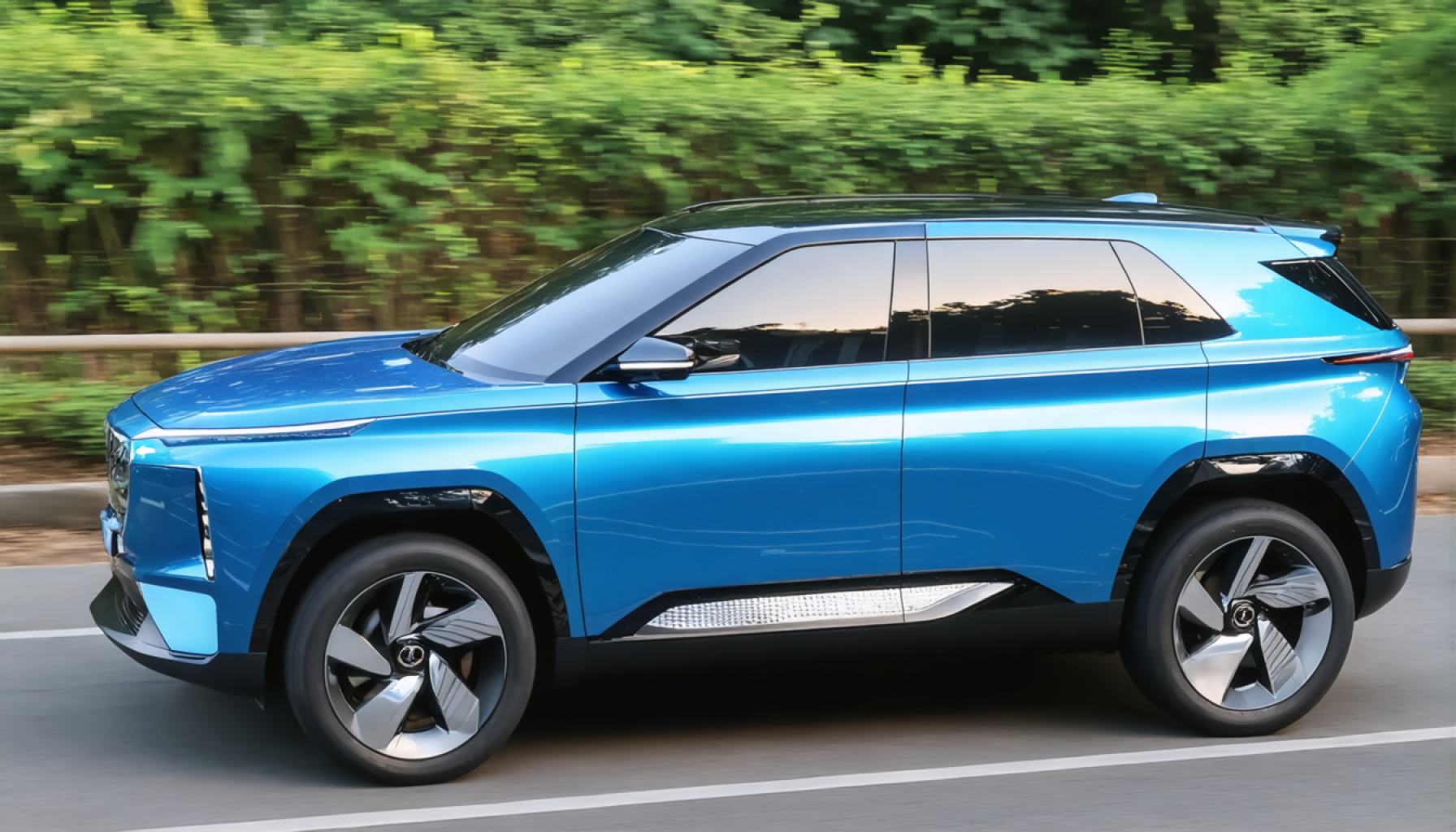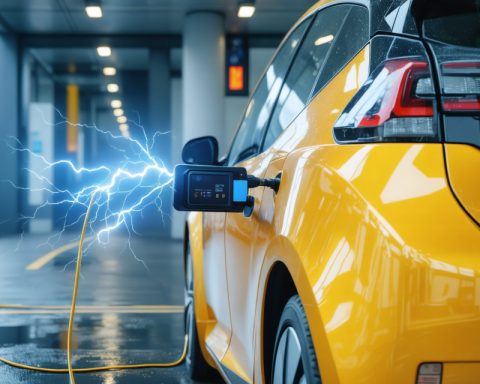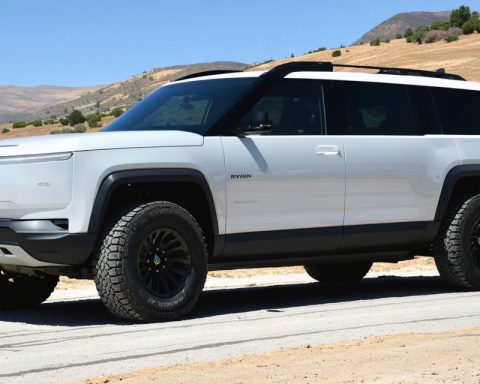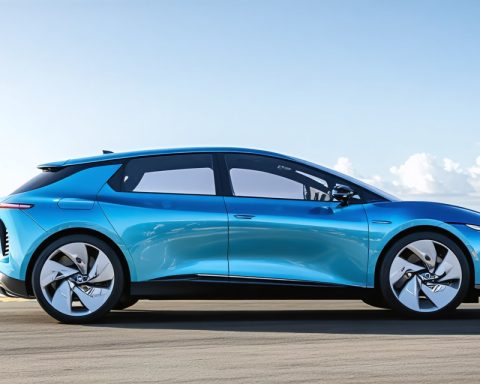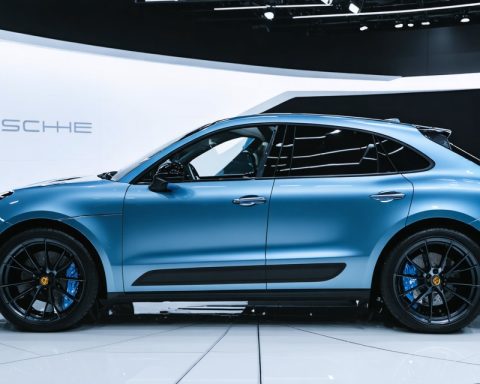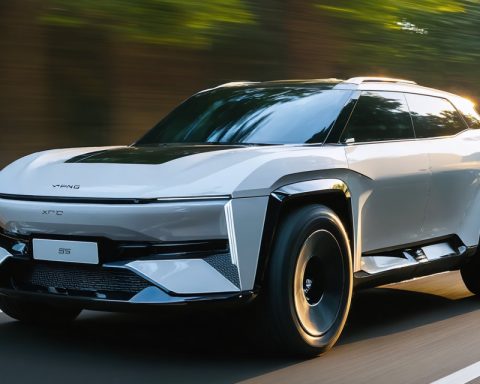- BYD’s Sealion 7 is an ambitious entry in the electric SUV market, blending high performance with innovative features.
- The Sealion 7 boasts up to 523 horsepower and can accelerate from 0-62 mph in just 4.5 seconds.
- It utilizes BYD’s e-Platform 3.0 and advanced lithium-iron-phosphate (LFP) battery technology, redefining the electric driving experience.
- Despite its power, the Sealion 7 faces challenges with handling due to its soft suspension and remote steering.
- The interior features vegan leather seats and a large touchscreen, though the user experience has some drawbacks.
- Comprehensive driver assistance systems have mixed reviews, highlighting some refinement needs.
- Comes equipped with convenient features but price increases with additional options.
- BYD’s Sealion 7 offers an intriguing choice amid competitors like the Tesla Model Y and Hyundai Ioniq 5.
BYD, a Chinese automaker rewriting the rules of the electric vehicle (EV) game, is steering into uncharted waters with its bold new SUV, the Sealion 7. As the company continues its global expansion—selling a remarkable 4.72 million electric cars in 2024 alone—this latest addition to its lineup promises to make waves both on-road and in the showroom.
The Sealion 7 is not merely another contender; it’s a serious player with ambitions of dominating the electric SUV market. Catering to thrill-seekers and daily commuters alike, this vehicle packs a punch with configurations that offer up to 523 horsepower and a swift 0-62 mph time of just 4.5 seconds. It’s a muscular beast compared to its rival SUV counterparts like the Audi Q4 E-tron and Polestar 3.
But sheer power isn’t the only storyline here. BYD’s Sealion 7 adopts the innovative e-Platform 3.0, incorporating the brand’s pioneering lithium-iron-phosphate (LFP) battery technology. This isn’t just about horsepower; it’s about remapping the future of electric drive. Yet, as impressive as its technological pedigree is, this new addition to the phylum of EVs aligns with new strategies in nomenclature, where SUVs are inspired by the fierce adaptability of ocean predators, saloons earned their “Seal” moniker, and nimble hatchbacks are labeled as “Dolphins.”
Inside the cabin, the Sealion 7 aims to soothe weary travelers with its sumptuous vegan leather seats and a compelling, albeit glossy, interior design. Its soaring touchscreen is a testament to the modern motorist’s love affair with digital interfaces, though it occasionally stumbles through user experience with less-than-stellar translations and functionality hiccups.
Yet, there’s a notable tale of caution. For all its vibrant energy and theoretical thrills, the Sealion 7 wobbles when asked to dance on the serpentine roads. Its softly sprung suspension and remote steering may discourage spirited drives, despite the platform’s impressive power possibilities. Moreover, the vehicle’s comprehensive driver assistance systems are seemingly engineered to remind owners that high-tech isn’t synonymous with refinement—overspeed warnings that pause your playlist and persistent driver nagging quickly erode the charm of this futuristic chariot.
Nonetheless, the Sealion 7 comes meticulously equipped from the get-go. Wireless charging, heated seats, and a state-of-the-art climate control system comfort those who enter, although the price tag swells sharply with each added bell and whistle.
As it stands, the Sealion 7 is charting its own path with a balance of bold ideas and room for improvement. Despite its narrative of power and advanced design, buyers may pause when comparing ride quality and efficiency to the likes of the Tesla Model Y or Hyundai Ioniq 5. But for those looking for a pioneering brand that is writing today’s story of tomorrow’s transportation, the Sealion 7 is a reminder that the seas of the automotive world are filled with intriguing possibilities. The question is whether BYD’s latest offering will sink or solidify its prestige in the accelerating market of electric evolution.
How BYD’s Sealion 7 Could Change the Game in the Electric SUV Market!
Introduction
BYD, a frontrunner in the electric vehicle (EV) industry, has launched its bold new SUV, the Sealion 7, exemplifying innovation and strategic market positioning. As part of its rapid global expansion, BYD sold an impressive 4.72 million electric cars in 2024, demonstrating its growing influence. The Sealion 7’s emergence not only strengthens BYD’s lineup but promises significant ripples in both the EV ecosystem and consumer showrooms.
Features, Specs, and Pricing
The Sealion 7 is equipped with cutting-edge technology capable of generating up to 523 horsepower, propelling the vehicle from 0 to 62 mph in a mere 4.5 seconds. This power is complemented by BYD’s innovative e-Platform 3.0 and proprietary lithium-iron-phosphate (LFP) battery technology, which aim to redefine electric mobility.
Interior and Design
The interior of the Sealion 7 offers luxurious vegan leather seats and a modern digital interface through a prominent touchscreen. However, potential usability issues due to translation errors and functionality setbacks can affect the experience.
Pros & Cons Overview
Pros:
– Powerful Performance: Up to 523 horsepower for quick acceleration.
– Innovative Technology: e-Platform 3.0 and LFP battery enhance efficiency and sustainability.
– Luxury Interior: Vegan leather seats and comprehensive climate control.
Cons:
– Handling Challenges: Soft suspension and remote steering may deter dynamic driving.
– Driver Assistance Limitations: Features like overspeed warnings and driver alerts can disrupt enjoyment.
– High Price Points: Premium features significantly increase costs.
Market Forecasts & Industry Trends
With the global EV market accelerating, the Sealion 7 taps into a growing demand for powerful, sustainable, and technologically advanced SUVs. The move towards LFP battery technology underscores a trend towards longer-lasting and more stable energy solutions in EVs, which could see broader adoption across the industry.
Insights & Predictions
Experts anticipate that the BYD Sealion 7, despite its challenges, will stimulate interest in BYD’s technological innovations, potentially pushing competitors to enhance their own offerings. This could inspire new standards for performance and digital integration in future EVs.
Controversies & Limitations
Despite its advancements, the Sealion 7 faces criticism for its ride quality and some driver assistance quirks. Compared to Tesla’s Model Y or Hyundai’s Ioniq 5, it may not fully match in ride smoothness or user interface sophistication.
Real-World Use Cases
Ideal for both thrill-seekers who appreciate a powerful ride and eco-conscious consumers drawn to sustainable energy solutions, the Sealion 7 offers versatility. Families who prioritize safety and advanced tech features will also find value in its comprehensive driver assistance systems.
Actionable Recommendations
1. Test Drive: Prospective buyers should schedule a test drive to personally assess handling and comfort.
2. Feature Assessment: Evaluate which premium features are necessary to avoid unexpected expenses.
3. Stay Informed: Keep abreast of updates in the software to improve user experience and functionality.
Conclusion
The BYD Sealion 7 is a forward-thinking vehicle that highlights the potential of EV innovation. While it does have areas needing improvement, its groundbreaking technology and strong performance present a compelling choice for those keen to invest in the future of electric mobility. For more insights on electric vehicles and market trends, visit BYD.
